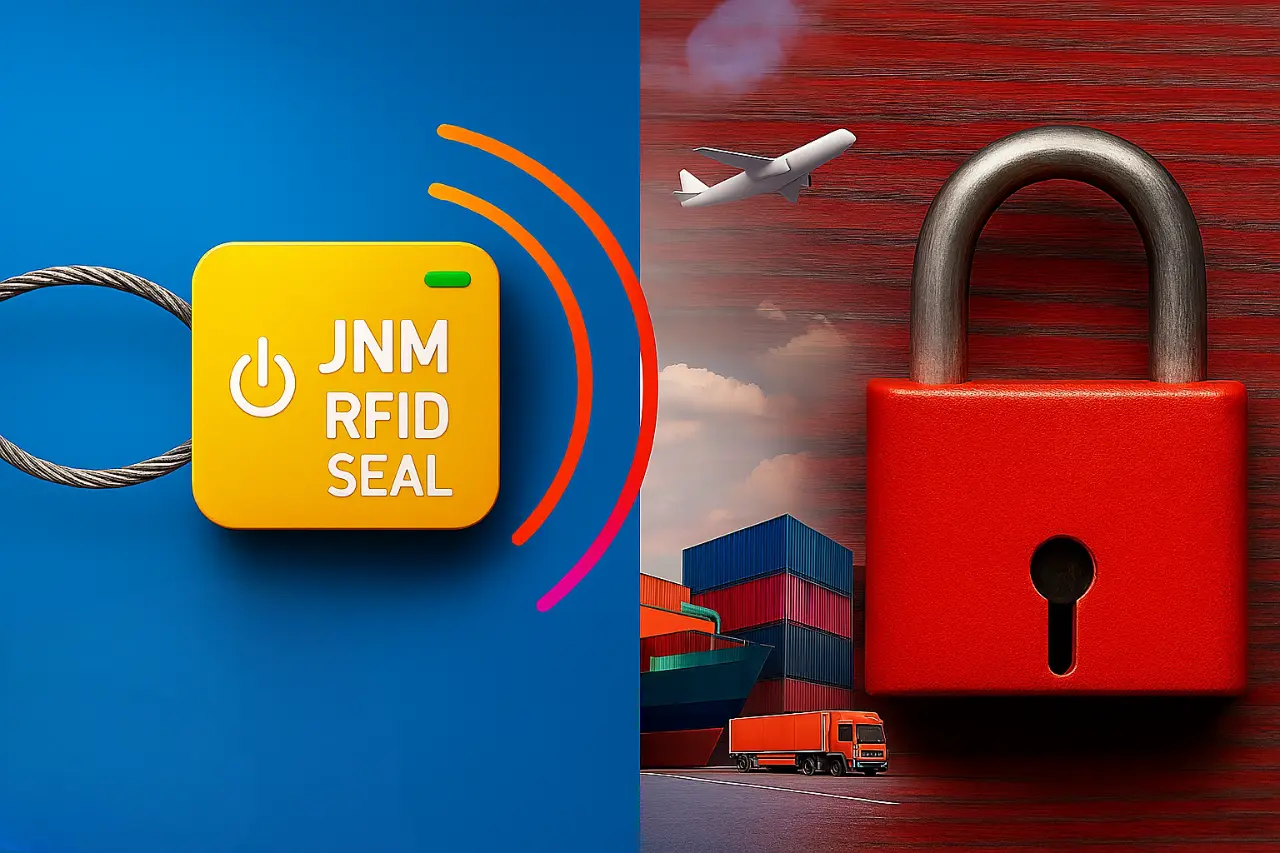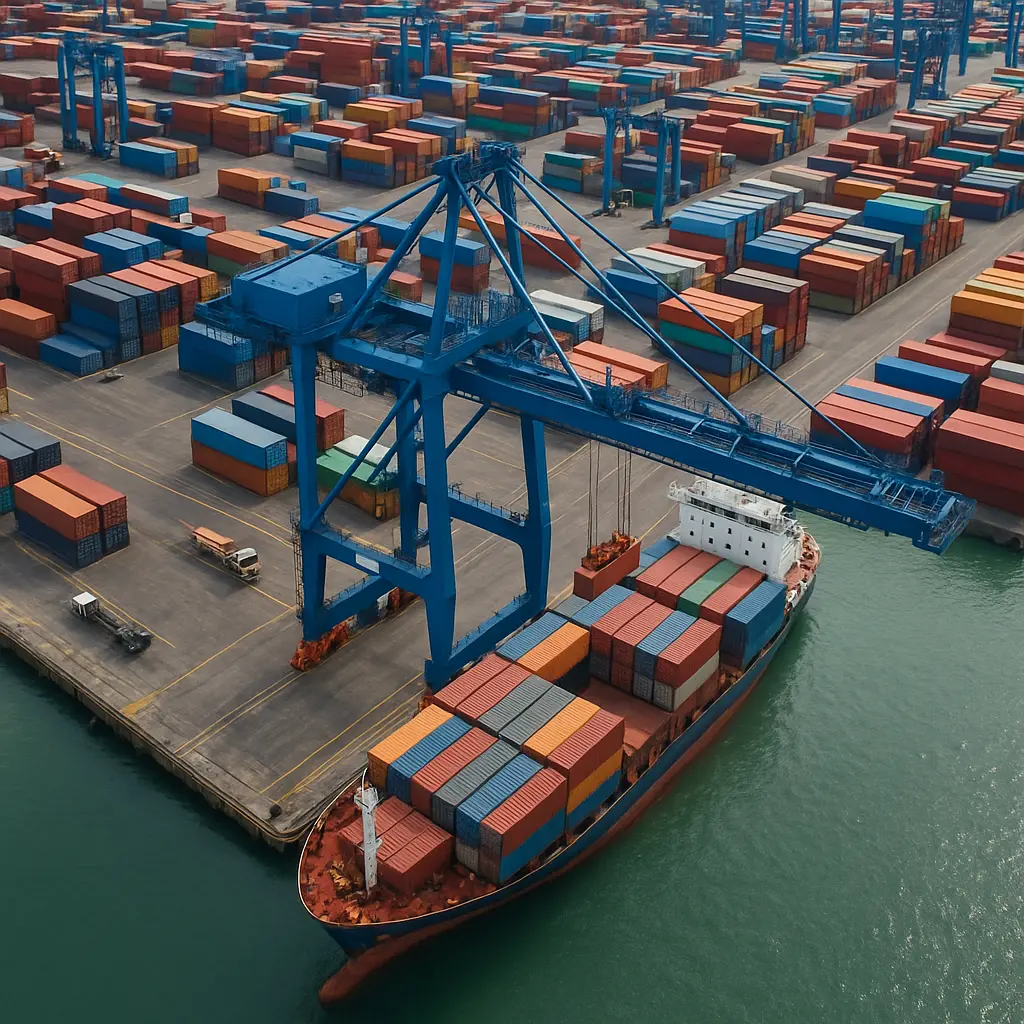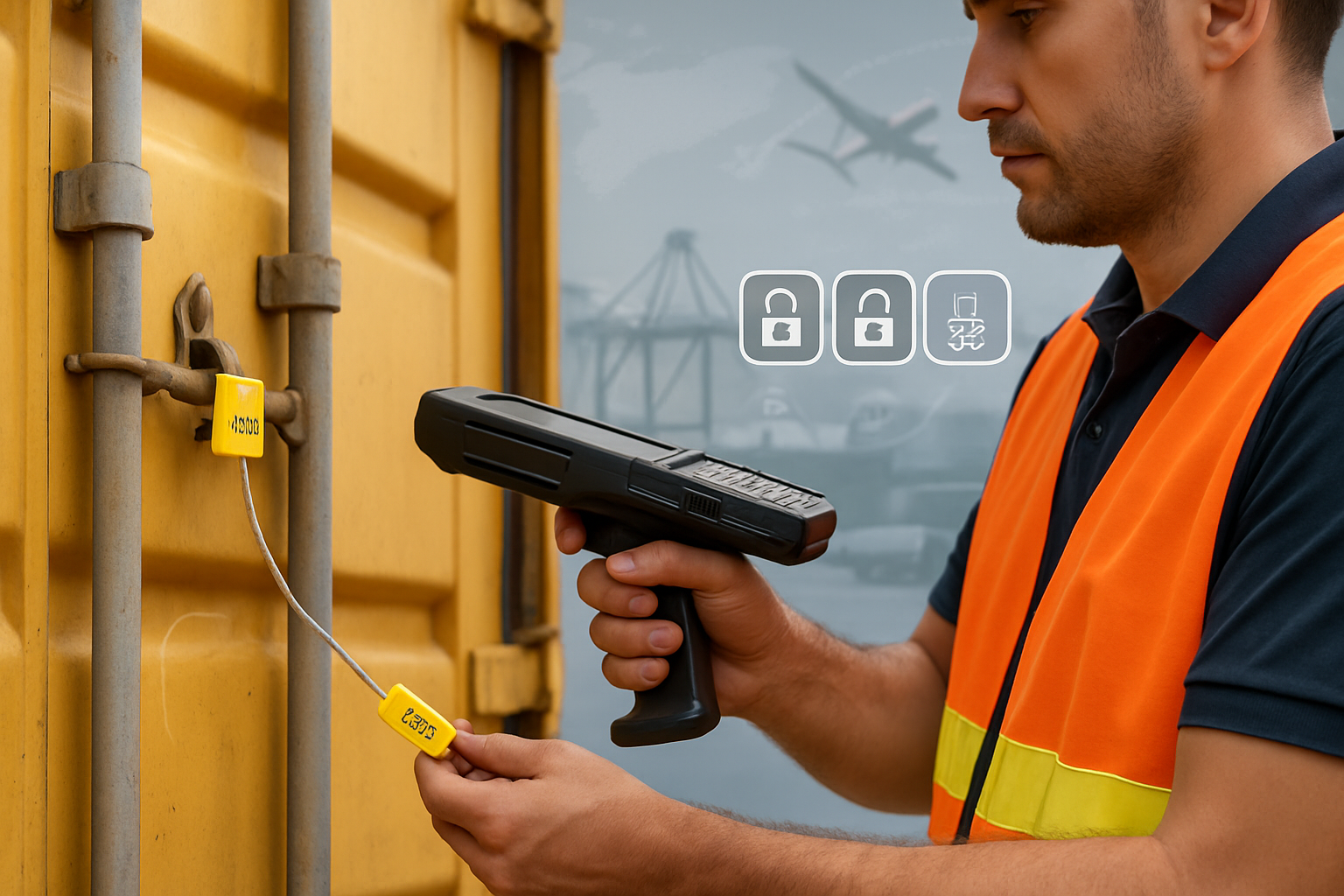Traditional cargo seals often fall short in today’s fast-paced global logistics. They offer little visibility, no real-time alerts, and limited tamper evidence. RFID cable seals bring a smarter solution, providing digital traceability, instant tamper alerts, and real-time cargo tracking. Logistics companies worldwide are adopting these advanced RFID container seals to enhance security and streamline operations.
The Role of Container Seals in Modern Logistics
Container seals are the first line of defense in cargo security. They prevent tampering, maintain chain-of-custody integrity, and ensure customs compliance. Traditional shipping container door seals and cargo seals are still in use, but their reliance on manual inspections and physical verification makes them vulnerable. For operators handling high-value shipments, a single compromised seal can result in delays, theft, or regulatory penalties.
What Are RFID Cable Seals?
An RFID cable seal is a hybrid security device combining a physical cable lock with an embedded RFID chip. This chip records and transmits data that can be scanned without removing the seal, allowing logistics managers to verify shipments digitally. Electronic seals provide automated tamper alerts, improve accuracy, and reduce manual inspection time. These RFID container seals are ideal for tracking shipments across ports, warehouses, and trucking fleets.
Understanding the 3-State RFID Seal Technology
Unlike standard RFID seals that show only locked or unlocked states, 3-State RFID seals introduce a third condition for tampered or unauthorized access. This technology enhances digital traceability, giving logistics managers immediate insight into container integrity.

3-State RFID Cable Seal
This version combines RFID tracking with a durable cable mechanism. It is perfect for standard containers, trailers, and customs shipments. The real-time monitoring ensures security at every transit point. Read more about the product.
3-State RFID Active Cable Seal
Powered by a small battery, this active model enables continuous tracking over long distances. It is ideal for high-value shipments, cross-border fleets, and port-to-port operations.
3-State RFID Plastic Seal
A cost-effective solution for lighter shipments or internal logistics, the plastic variant maintains tamper evidence and digital logging while reducing costs.
Traditional Seals and Their Limitations
Traditional seals, including bolt, plastic, and metal types, still secure many shipments but have serious limitations. Manual checks are prone to human error, shipping container locks and conex box locks can be tampered with easily, and there is no automated tracking or real-time visibility. These constraints make them increasingly unsuitable for modern, high-volume logistics operations.
RFID Cable Seals vs Traditional Seals: Key Differences
| Feature | Traditional Seal | RFID Cable Seal | High-value shipments |
| Tracking | Manual | RFID scan | Real-time, multi-state |
| Tamper Evidence | Limited | Detected post-inspection | Instant alerts |
| Data Storage | None | Chip memory | Cloud + chip |
| Ideal Use | Low-security cargo | Standard shipments | High-value shipments |
How RFID Seals Improve Supply Chain Visibility
With RFID container seals, logistics teams can monitor shipments in real time. Alerts for tampering reduce losses, while automated logs improve reporting and compliance. Active RFID technology provides remote tracking and status updates, helping companies optimize routes, reduce inspection times, and maintain full transparency.
Why Logistics Companies Are Upgrading to RFID Cable Seals
Real-world logistics challenges, cargo theft, inspection delays, and manual verification, drive the global shift toward RFID sealing technology. Research by the Urban Freight Lab, University of Washington, found that using electronic door seals (E-seals) on shipping containers improved supply chain efficiency and reduced border inspection times by up to 50% compared to manual documentation. These findings confirm how RFID and 3-State RFID cable seals enhance both security and operational speed across global trade lanes.
Global Adoption: RFID Seals in International Trade
RFID technology is gaining global traction in ports and customs. Key regions include:
- Asia-Pacific: China (Shanghai, Ningbo, Shenzhen), Singapore, South Korea (Busan), India (Nhava Sheva, Mundra)
- Middle East: UAE (Jebel Ali, Khalifa Port), Saudi Arabia (Dammam), Oman (Sohar)
- Europe: Netherlands (Rotterdam), Germany (Hamburg), UK (Felixstowe)
- Americas: USA (Los Angeles, New York/New Jersey), Brazil (Santos)
These hubs represent high-value clients for the adoption of RFID container seals.
Why Choose Klikeseal RFID Cable Seals
Klikeseal offers reliable, compliant, and advanced RFID solutions. The 3-State product line ensures durability, tamper-proof monitoring, and seamless integration with existing logistics software. Companies can select cable, active, or plastic seals based on shipment type, cargo value, and monitoring requirements.
Conclusion
RFID cable seals are transforming cargo security. They provide digital traceability, tamper evidence, and real-time tracking, making them indispensable for modern logistics. Companies seeking higher efficiency, compliance, and peace of mind are upgrading to Klikeseal’s RFID solutions.
Frequently Asked Questions
An RFID cable seal combines a mechanical locking mechanism with an electronic RFID chip. It securely seals shipping containers while transmitting unique identification data that can be scanned without breaking the seal, improving tracking accuracy and reducing tampering risks.
Klik eSeal’s RFID cable seals provide real-time visibility, tamper alerts, and automatic identification, all in one device. Unlike traditional mechanical seals, they allow logistics teams to digitally verify every shipment without manual inspection.
Klik eSeal’s 3-State RFID Cable Seal detects three conditions: Locked, Unlocked, and Tampered. This innovation enables logistics managers to track the seal’s status in real time and receive alerts when any unauthorized access occurs.
Yes. Klik eSeal’s RFID seals comply with ISO 17712, C-TPAT, and other international security standards. They are widely accepted by global ports and customs authorities in countries like India, the UAE, Singapore, the US, and the UK.
Absolutely. Klik eSeal supplies RFID cable, active, and plastic seals in bulk for large-scale logistics, fleet, and export operations. You can also request customized branding, serialization, or pre-programmed RFID data for seamless integration.


